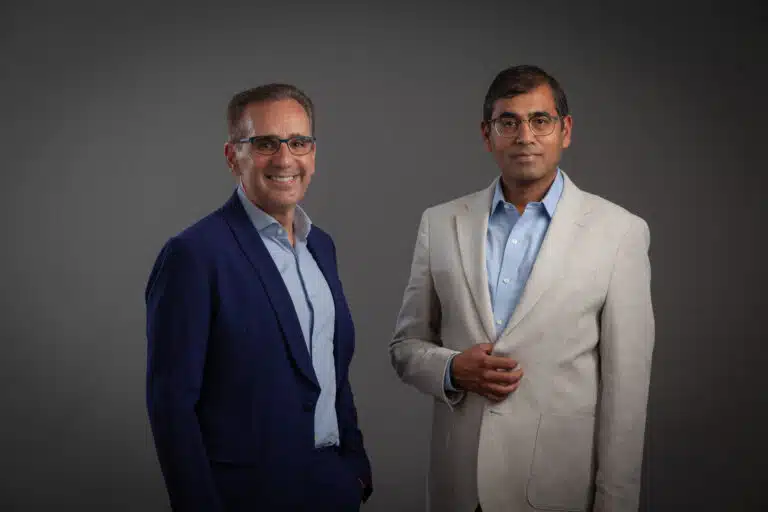Hiring in today’s economic climate is nothing short of challenging. “The labor market is tight as a drum,” asserts Christopher Rupkey, Wall Street chief economist and managing director, which means the competition to hire qualified talent is extremely tight. To find and hire employees, HR needs to use every tool in its arsenal.
So why aren’t more HR teams employing talent rediscovery to fill open positions?
According to our recent survey, The Future of Work: Intelligent by Design, only about 55 percent of HR leaders believe they effectively surface past applicants to fill open roles. This means nearly half are not turning to their existing talent pools as a source of qualified candidates.
This is a missed opportunity that could be the key to overcoming hiring challenges.
Talent rediscovery is critical to filling open roles
Finding and attracting new, qualified candidates is tough right now, and HR teams are quickly becoming dejected with their shrinking talent pools. What so many are forgetting is that they have a treasure trove of resumes of past job applicants they can tap into. Going back through those previous applicants is the essence of talent rediscovery.
When taking the approach of rediscovering talent, hiring managers start their searches with candidates already in the well from which to identify top hires.
“No requisition should start from zero,” says Andrea Shiah, former global talent acquisition leader at American Express in a recent white paper on talent rediscovery. “Once you start rediscovering the people you’ve been ignoring, you find there’s almost always a strong pipeline the moment a job’s open.” This is critical in tight labor markets because it gives organizations a competitive advantage.

How companies benefit from talent rediscovery
It’s a frustrating time for many HR teams trying to fill open roles at their organizations. “Due to record high unemployment levels during this unprecedented downturn, most organizations are being bombarded with applications,” notes talent management consultant and professor at San Francisco State University John Sullivan.
This should be a good thing.
“Unfortunately, many of these applicants have no chance of being hired,” Sullivan writes, citing statistics that say over 40 percent of the resumes received are from candidates who don’t meet skills requirements.
Working through all of those resumes for every open role to find quality candidates is a drain on HR resources. “The screening of applicants has become more arduous and time-consuming,” writes Mary Baker, director of public relations at Gartner.
That’s why HR teams need to embrace talent rediscovery. Revisiting candidates who already have a connection to the brand can help HR leaders make quality hires more quickly and cost-effectively.
Screening previous candidates reduces time to hire
One of the biggest hurdles facing hiring managers right now is the time it takes to hire someone. Companies can’t afford to move slowly on making job offers.
“There’s still a lot of good talent out there despite the shortage, but you have to move quickly,” says Melina Hollar, recruiting manager at accounting firm Sensiba San Filippo. “It’s more important than ever to utilize your network and reach out to past employees and candidates for leads,” she stresses.
This reduces an organization’s time-to-hire in two key ways.
- Because those resumes are already on file, hiring managers can immediately get a short list of candidates before they even post a job opening. This gives them a jump-start on the resume screening and selection process.
- These candidates already have a relationship with the brand and have expressed an interest in working with the company, so they’re likelier than others to be a good match to roles at the organization.
Eliminating some of the time spent screening resumes and matching them to open roles can reduce the time it takes to make job offers, which means less likelihood of losing the talent to the competition.
Talent rediscovery lowers acquisition costs
Hiring is becoming more expensive. Particularly now, post-pandemic, “the cost of replacing an employee is high for employers,” explains Cheryl Carleton, professor in the Economics Department at Villanova University. The competitive job market during the pandemic has led to an increase in hiring costs because of the longer time it takes to find and hire a quality candidate.
Pulling candidates from a pre-existing talent pool can help significantly reduce those acquisition costs.
Talent rediscovery can reduce job advertising costs by eliminating the need to post the job to different job boards or recruiting services. This equates to a smaller volume of applications, which helps to optimize the recruiting process. HR also spends less time on talent acquisition tasks, so the organization spends less money on those particular job functions.
While reducing time to hire and acquisition costs are major advantages to talent rediscovery, the greatest may be the improvement in the quality of hires.
Pulling from existing pools improves the quality of hires
When hiring for a position, there are always those candidates who almost made the cut, but fell short for some reason or other. They are the “silver medalists” — candidates who have already been screened and interviewed but weren’t the perfect match to an open role at the time. Now, however, they may be.
“Just because these silver medalist candidates didn’t get the job, that doesn’t mean that they are not wholly skilled or qualified for the position,” writes the staff at HR Future.“Silver medalists present an excellent opportunity for hiring managers to fuel their recruitment pipeline with high-quality, pre-vetted candidates.” This leads to better hires.

Ai facilitates the process of rediscovering talent
AI is key to making talent rediscovery work for any organization. HR teams need the machine-learning and analytical capabilities of talent intelligence platforms to sift through their databases of past candidates to find the best-qualified for current positions.
Ai-powered tools use historical data to find the right hire
The power of AI lies in its use of data. AI-powered talent intelligence platforms mine applicant tracking systems to find candidates with the qualifications hiring managers are seeking for open roles. “An algorithm can sort through people who have shown interest in similar positions before and select those who are a viable option for the new role,” writes Joseph Carew at TechTarget.
This includes passive candidates. These are often top candidates who may not actively apply for a new role but might be open to the possibility if it’s presented to them. One of the best ways to identify them is through talent rediscovery.
Talent Intelligence Platforms create positive candidate experiences
Top talent expect a positive candidate experience with a company they want to work for. “It’s all about giving the applicants what they want and need throughout the hiring process as a way to motivate the best ones to sign an offer letter,” writes Mara Calvello at software marketplace G2.
A big part of that experience is consistent and personal communication throughout the hiring process. Staying in contact with latent candidates in talent pools can improve the odds of those applicants accepting a future job offer, especially if the content shared is personalized to them. That’s another strength of AI-backed platforms.
When used with a CRM, talent intelligence enables HR to create targeted content that can be sent directly to past applicants in the talent pool. That content can include personalized job recommendations, informative blog posts related to a certain role or set of skills, or the latest company news that is relevant to the candidate.
AI facilitates that high level of personalization, keeping past candidates engaged so that when the company reaches out in the future, the relationship is already established. This leads to quicker hiring of quality candidates.
As HR teams continue to compete for the most qualified candidates, talent rediscovery will be an important tool for successful talent acquisition. Not only will it save companies time and money in the hiring process, but it will also help them hire top talent.
Through AI, talent intelligence platforms like Eightfold can analyze data to judge the capabilities and potential of people in past applicant databases, opening up the talent pool to candidates who may not have otherwise been considered, and speeding up the hiring process.
Images by: adrian1991/©123RF.com, jirsak/©123RF.com, milkos/©123RF.com



